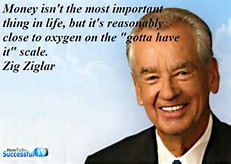
My parents met at the place where they worked.
They met at Sears Roebuck and Company in Memphis, TN in 1948. My father sold furniture and my mother ordered ladies shoes in the huge skyscraper of a building that was known for decades as Sears Crosstown.
They went on to eventually work for Sears for 20 years, until my mother took early retirement and my father was part of the generation which was asked to retire in the early 1980s, in order for the Powers-That-Be in Chicago to install a “new business model”, replacing full-time knowledgable employees who had profit-sharing with younger part-time employees.
How all that eventually worked out for Sears Roebuck and Company is another interesting story.
Every generation since my parents’ has been more transitory in their length of time at any one employer, until we find ourselves in 2018 watching this generation, known as the Millennials, seemingly switching jobs every couple of years or even more often than that.
As an older worker working alongside members of this generation, I have found myself wondering why they switch employers so often.
The wanderlust of youth, I understand. However, there has to be more than that.
Here are some plausible reasons for their job-hopping:
It’s Their First Full-time Job – Per an article found at fivethirtyeight.com…
…Most people in their early 20s are fairly new to their jobs, but most of them are fairly new to the workforce, period.
A Lack of Engagement – According to an article posted on gallup.com on May 12, 2016…
…Only 29% of millennials are engaged at work, meaning only about three in 10 are emotionally and behaviorally connected to their job and company. Another 16% of millennials are actively disengaged, meaning they are more or less out to do damage to their company. The majority of millennials (55%) are not engaged, leading all other generations in this category of worker engagement.
But, why are they not engaged? I realize that it’s not the latest video game, but, come on…it’s a job!
Show Me The Money! – According to Forbes.com, in an article posted on November 30, 2013
Young workers are now 30 years old when they first earn a median-wage income of about $42,000, a marker of financial independence, up from 26 years old in 1980.
“Pension?” “What’s that?” – An article from May 6, 2015, found at attn.com, states that
Melissa Murray Bailey of consulting and research company Universum told The Washington Post last year that the workforce operated quite differently for Baby Boomers when they entered.
“In the Baby Boomer generation, everybody had pensions, and that really facilitated lifelong commitments to a company,” Murray Bailey said. “As companies have done less and less of that, there really is less of a mutual expectation that people will make that commitment.”
A point which was brought up in several of the articles which I read during my research for this post, is the fact that a lot of companies are new to the economy themselves, as is the company which I work for.
Millennials, in their quest to better their job situation, may not wish to share in the experience of the growing pains that a new company goes through, even though there may be opportunities for better jobs within the company if they stayed there.
In summary, I suppose the reason that Millennials change jobs so often in this brave new “flexible” economy…is simply because THEY CAN.
Never give up. Never surrender,
Allen
Allen Fitzhugh is a Team Leader with The Revenue Optimizations Companies at their Hernando Walmart location. He may be contacted at In-mail at linkedin.com.









